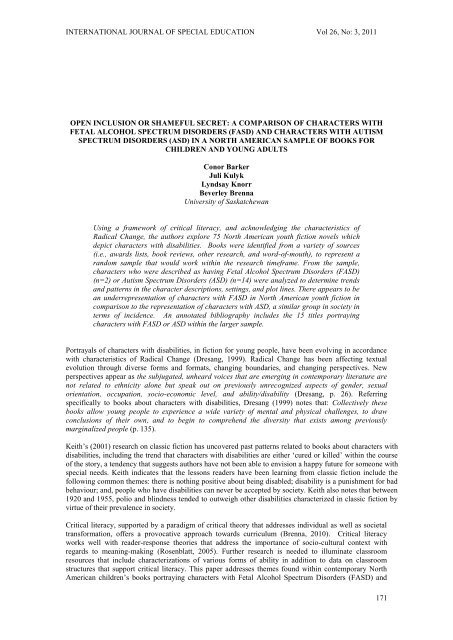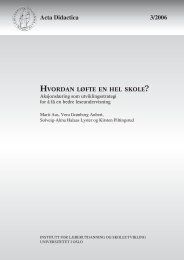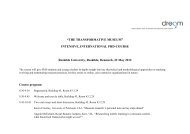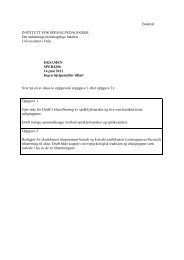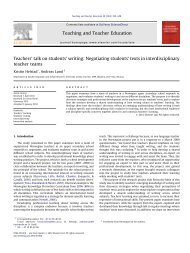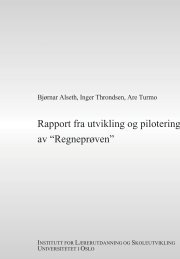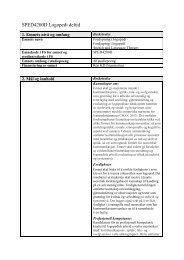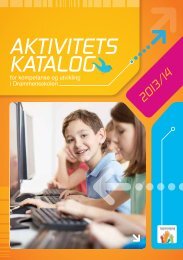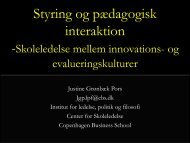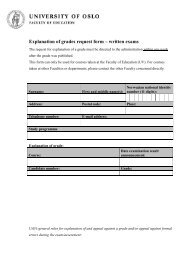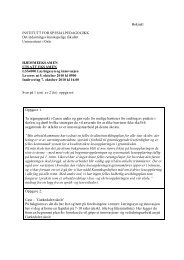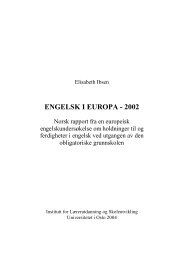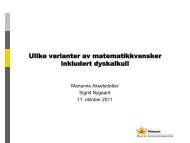International Journal Special Education
International Journal Special Education
International Journal Special Education
You also want an ePaper? Increase the reach of your titles
YUMPU automatically turns print PDFs into web optimized ePapers that Google loves.
INTERNATIONAL JOURNAL OF SPECIAL EDUCATION Vol 26, No: 3, 2011OPEN INCLUSION OR SHAMEFUL SECRET: A COMPARISON OF CHARACTERS WITHFETAL ALCOHOL SPECTRUM DISORDERS (FASD) AND CHARACTERS WITH AUTISMSPECTRUM DISORDERS (ASD) IN A NORTH AMERICAN SAMPLE OF BOOKS FORCHILDREN AND YOUNG ADULTSConor BarkerJuli KulykLyndsay KnorrBeverley BrennaUniversity of SaskatchewanUsing a framework of critical literacy, and acknowledging the characteristics ofRadical Change, the authors explore 75 North American youth fiction novels whichdepict characters with disabilities. Books were identified from a variety of sources(i.e., awards lists, book reviews, other research, and word-of-mouth), to represent arandom sample that would work within the research timeframe. From the sample,characters who were described as having Fetal Alcohol Spectrum Disorders (FASD)(n=2) or Autism Spectrum Disorders (ASD) (n=14) were analyzed to determine trendsand patterns in the character descriptions, settings, and plot lines. There appears to bean underrepresentation of characters with FASD in North American youth fiction incomparison to the representation of characters with ASD, a similar group in society interms of incidence. An annotated bibliography includes the 15 titles portrayingcharacters with FASD or ASD within the larger sample.Portrayals of characters with disabilities, in fiction for young people, have been evolving in accordancewith characteristics of Radical Change (Dresang, 1999). Radical Change has been affecting textualevolution through diverse forms and formats, changing boundaries, and changing perspectives. Newperspectives appear as the subjugated, unheard voices that are emerging in contemporary literature arenot related to ethnicity alone but speak out on previously unrecognized aspects of gender, sexualorientation, occupation, socio-economic level, and ability/disability (Dresang, p. 26). Referringspecifically to books about characters with disabilities, Dresang (1999) notes that: Collectively thesebooks allow young people to experience a wide variety of mental and physical challenges, to drawconclusions of their own, and to begin to comprehend the diversity that exists among previouslymarginalized people (p. 135).Keith’s (2001) research on classic fiction has uncovered past patterns related to books about characters withdisabilities, including the trend that characters with disabilities are either ‘cured or killed’ within the courseof the story, a tendency that suggests authors have not been able to envision a happy future for someone withspecial needs. Keith indicates that the lessons readers have been learning from classic fiction include thefollowing common themes: there is nothing positive about being disabled; disability is a punishment for badbehaviour; and, people who have disabilities can never be accepted by society. Keith also notes that between1920 and 1955, polio and blindness tended to outweigh other disabilities characterized in classic fiction byvirtue of their prevalence in society.Critical literacy, supported by a paradigm of critical theory that addresses individual as well as societaltransformation, offers a provocative approach towards curriculum (Brenna, 2010). Critical literacyworks well with reader-response theories that address the importance of socio-cultural context withregards to meaning-making (Rosenblatt, 2005). Further research is needed to illuminate classroomresources that include characterizations of various forms of ability in addition to data on classroomstructures that support critical literacy. This paper addresses themes found within contemporary NorthAmerican children’s books portraying characters with Fetal Alcohol Spectrum Disorders (FASD) and171


